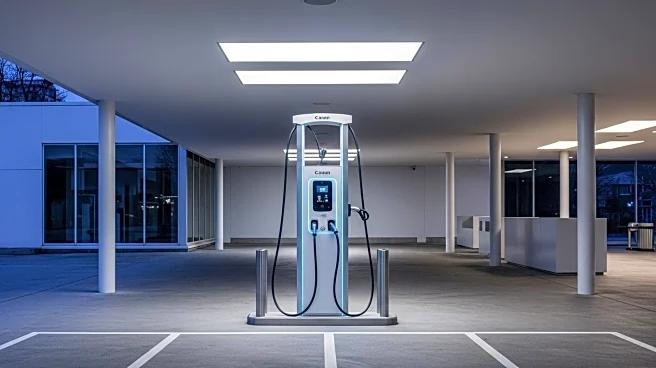What's Happening?
South Korean President Lee Jae Myung has expressed concerns that South Korean businesses, including Hyundai, may reconsider their investment plans in the United States following an immigration raid at Hyundai's battery plant in Georgia. The raid resulted in the detention of hundreds of South Korean workers, leaving businesses 'flummoxed' and potentially impacting future direct investments. This development comes as both countries are negotiating the details of a $350 billion investment package agreed upon in July.
Why It's Important?
The raid and subsequent concerns from South Korean businesses could have significant implications for U.S.-South Korea economic relations. Hyundai's investments are crucial for the U.S. automotive industry, particularly in the electric vehicle sector. A hesitation from South Korean companies to invest could slow down the growth of this industry and affect job creation in the U.S. Additionally, the situation may strain diplomatic relations between the two countries, impacting broader economic cooperation and trade agreements.
What's Next?
As negotiations continue over the $350 billion investment package, both governments may need to address the concerns raised by South Korean businesses to ensure continued economic collaboration. The U.S. may need to review its immigration enforcement practices to prevent further disruptions to foreign investments. Stakeholders in the automotive industry will be closely monitoring the situation, as any changes in investment plans could affect production timelines and market strategies.










